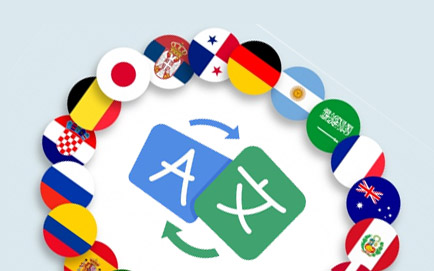The Advantages of Cross-Language Search in Multilingual Platform Solutions
In today’s interconnected world, businesses and organizations are constantly expanding their reach across borders, serving a global audience with diverse languages and cultures. As a result, multilingual platforms are becoming increasingly vital to ensure effective communication and engagement with users worldwide. One critical aspect of such platforms is the ability to search across multiple languages, a feature that is often referred to as cross-language search .
Cross-language search is a solution that allows users to search for content in one language and retrieve relevant results in other languages. This technology enables users to access a wider pool of information, breaking down the barriers posed by language differences. In this blog post, we will explore the key advantages of implementing cross-language search in multilingual platforms.
1. Increased Reach and Accessibility
One of the most significant benefits of cross-language search is its ability to expand a platform’s reach. By enabling users to search in their native language while still being able to access content in other languages, platforms can serve a broader audience. This is particularly useful for global businesses that want to offer their services in various regions without having to manually translate or duplicate content in every language.
For example, if a user in France searches for a product or service in French, cross-language search allows the platform to retrieve relevant results even from English, Spanish, or German content. This ensures that users have access to more comprehensive and diverse content without language barriers limiting their experience.
2. Improved User Experience
Cross-language search significantly enhances the user experience by making it easier for users to find the information they need, even when it’s not in their preferred language. It creates a seamless experience where users can conduct searches without the frustration of switching between different language versions of a website or application.
Furthermore, it reduces the need for users to understand the language of the content they are searching for. For example, a Chinese-speaking user can search for English-language content without having to manually translate their query or be limited by language-specific filters.
3. Efficiency and Time-Saving
In many cases, users may not know the exact language in which a particular piece of content is written. Cross-language search saves time by allowing them to input their query in their preferred language and automatically retrieve results from all available languages. This is especially valuable for research, customer support, and information retrieval, where time is of the essence.
For businesses, this can result in reduced overhead as content does not need to be replicated in every single language. Instead, cross-language search can ensure that users are able to discover relevant material across multiple languages, making the platform more efficient and cost-effective.
4. Enhanced Content Discovery
A multilingual platform without cross-language search may lead to fragmented content discovery. Users who speak one language might only access content written in that language, missing out on valuable information in other languages. By leveraging cross-language search, platforms can break down language silos and enhance content discovery.
This is particularly useful in fields such as academia, where research and publications may be available in multiple languages. Cross-language search allows users to access a broader set of resources, leading to more comprehensive results, a deeper understanding, and greater knowledge sharing.
5. Competitive Advantage
For businesses that are looking to expand internationally, implementing cross-language search can be a key differentiator in a crowded market. By offering users the ability to search across multiple languages effortlessly, companies can demonstrate their commitment to providing an inclusive, user-centric experience. This can result in higher customer satisfaction, increased brand loyalty, and, ultimately, a stronger competitive edge in the global marketplace.
In an era where businesses are striving to cater to a diverse and global customer base, cross-language search serves as a critical tool to stand out from the competition and deliver exceptional value to users.
6. Support for Multilingual Customer Support
Cross-language search also benefits customer support systems, where users can search for solutions in their native language while accessing resources, FAQs, and support articles in multiple languages. This is particularly important in global customer service, as customers may feel more comfortable searching for help in their primary language, while still benefiting from the full range of support available on the platform.
Conclusion
Incorporating cross-language search into a multilingual platform provides a host of advantages, from expanding reach and improving user experience to enhancing content discovery and offering a competitive edge. As businesses continue to operate on a global scale, implementing a cross-language search solution is no longer a luxury—it’s a necessity. Whether you're in e-commerce, education, or any other industry, breaking down language barriers will help you connect with users around the world and provide them with the best possible experience.
Django-US Blog (http://www.django-us.com/Blog/) can experience cross-language search
